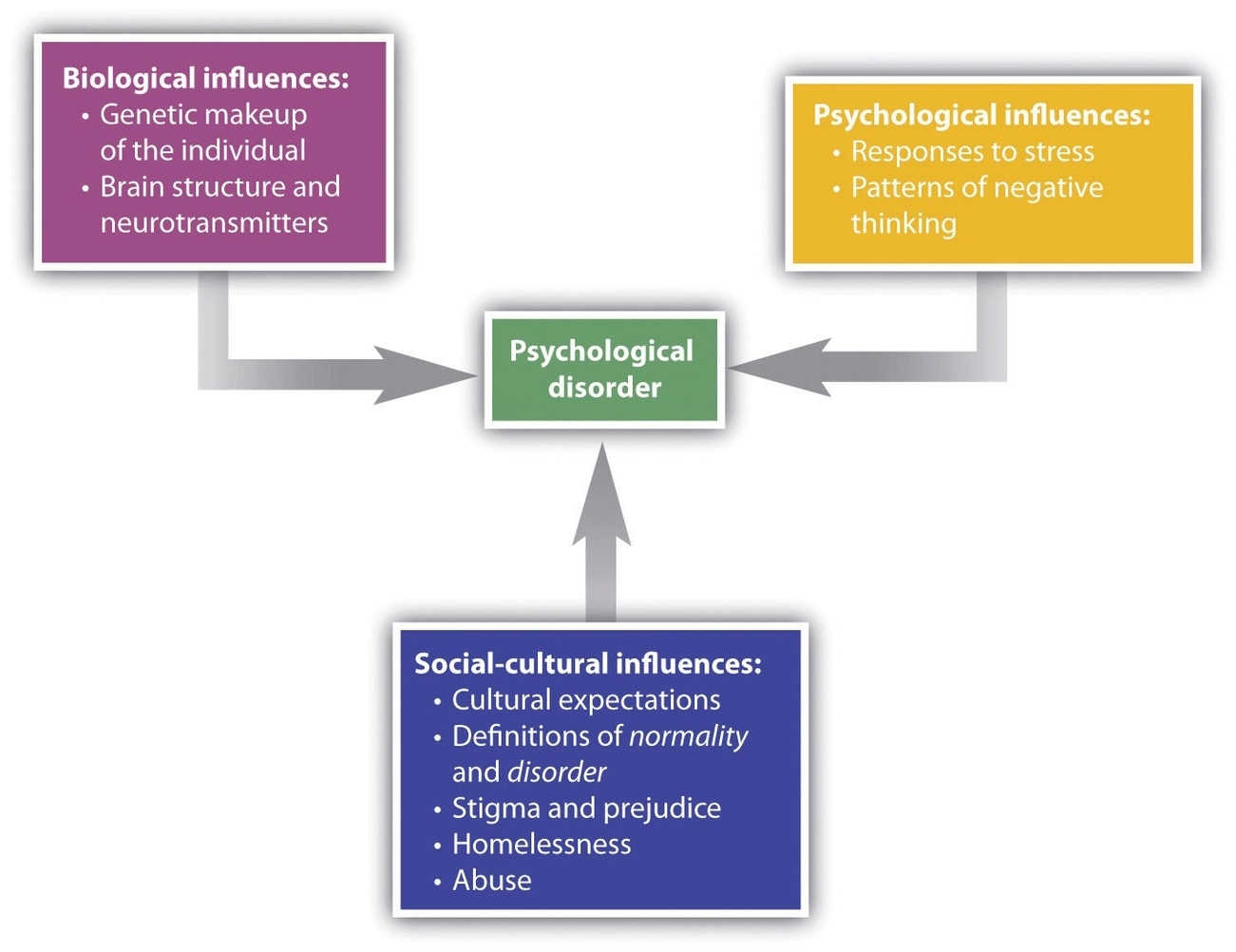Psychological Disorders
Psychological disorders, also known as mental illnesses or mental health conditions, are conditions characterized by abnormal thoughts, feelings, and behaviors. They can affect a person’s thinking, emotions, and behavior, often impacting relationships and day-to-day functioning. These conditions can be temporary or lifelong.
Prevalence
Mental health conditions are common. The National Alliance on Mental Illness estimates that 1 in 5 adults in the United States experiences a psychological disorder each year.
Types of Psychological Disorders
1. Anxiety Disorders: People with anxiety disorders experience persistent anxiety that often gets in the way of their day-to-day functioning. Their anxiety is often disproportional to the situation at hand. Common types of anxiety disorders include generalized anxiety disorder, illness anxiety disorder, separation anxiety disorder, social anxiety disorder, specific phobias, and panic disorder.
2. Mood Disorders: Mood disorders include depressive disorders such as major depressive disorder, postpartum depression, and major depressive disorder with seasonal patterns, also known as seasonal affective disorder. Bipolar disorders and premenstrual dysphoric disorder, which involves severe premenstrual syndrome (PMS) symptoms, especially symptoms relating to mood, are also mood disorders.
3. Neurodevelopmental Disorders: Neurodevelopmental disorders are those that are typically diagnosed during infancy, childhood, or adolescence. These psychological disorders include Intellectual Development Disorder and Global Developmental Delay.
4. Communication Disorders: These disorders impact the ability to use, understand, or detect language and speech.
Treatment
Although psychological disorders can be challenging to live with, they can be treated. Talk therapy, self-care strategies, and medication can all play a role in helping people with psychological disorders function better. Lifestyle changes, such as maintaining a routine and engaging in healthy stress-relief methods, may also help.
Conclusion
Psychological disorders can affect daily functioning and interpersonal relationships. Understanding these disorders is crucial for providing appropriate care and support to those affected. With the right treatment and support, individuals with psychological disorders can lead fulfilling lives.



